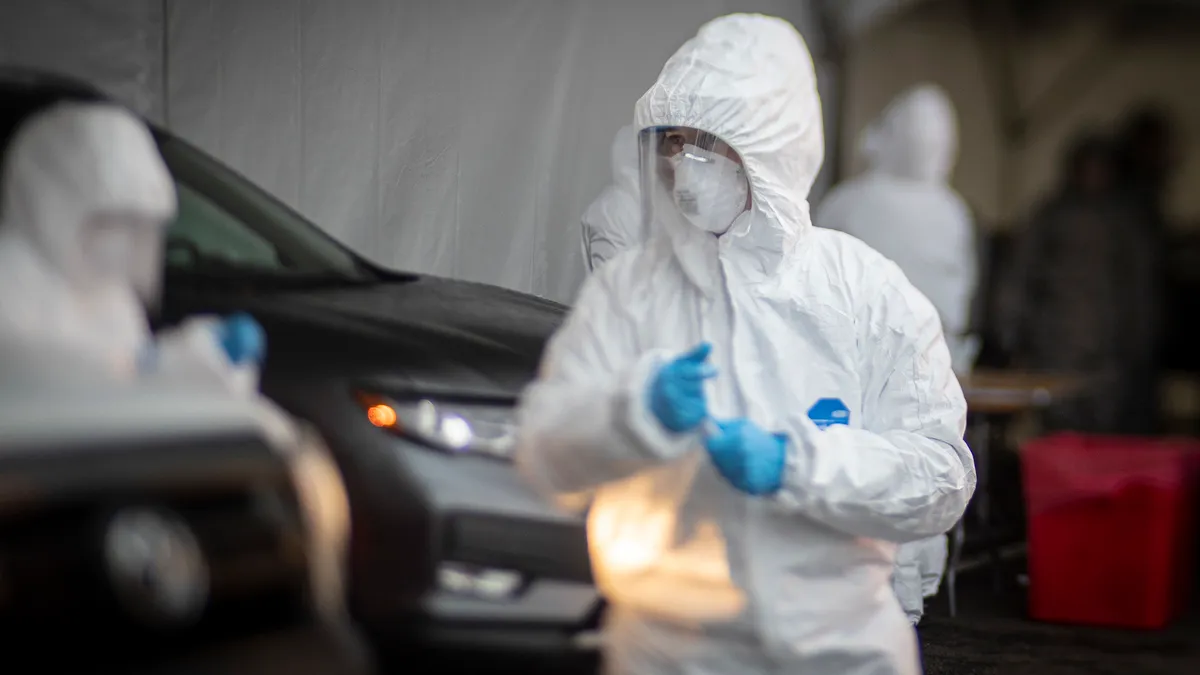Dive Brief:
- As cases and deaths from the new coronavirus (COVID-19) continue to mount, city leaders must "brace for impact" and prepare for a "very dark couple of months" ahead, former New Orleans Mayor Mitch Landrieu said Wednesday. By communicating properly with residents and between the different levels of government, cities can weather the worst of it, he said.
- Landrieu's warning echoes that of President Trump, who said Americans face a "painful" two weeks ahead, noting as many as 240,000 people could die from the coronavirus. "Our country has not received a blow like that in our lifetimes, and how we respond to that is going to be very difficult, it's going to challenge us," Landrieu said during the webinar, hosted by the Adrienne Arsht-Rockefeller Foundation Resilience Center at the Atlantic Council.
- In the weeks ahead, Landrieu said mayors' leadership will be key, especially in the way they communicate the need to maintain social distancing policies or bring in shelter-in-place orders. They will also need to be empathetic and caring as the death toll mounts. "I think we have to be walked through this in a very thoughtful way," Landrieu said. "Honest, truthful, in a way that prepares the public for what is coming."
Dive Insight:
Responding to the coronavirus has been challenging for cities across the United States, with many local leaders saying they were ill-prepared for the pandemic and lack equipment like ventilators, protective clothing and beds in intensive care units (ICUs).
At the local level, that has forced a variety of creative solutions, with New Orleans and New York City among those to repurpose convention centers and other public spaces into field hospitals, in partnership with the Federal Emergency Management Administration (FEMA) and the National Guard. But Landrieu said leaving much of the response up to states and cities has created confusion, especially as leaders compete for a limited supply of resources.
"You can feel that we’re actually out of sync right now," Landrieu said. "That's why you hear mayors and governors today say, 'I'm OK until April whatever the day is.' Then other folks are scrambling to get the assets to where they need to be."
Miami Beach, FL Mayor Dan Gelber said during the webinar it was difficult to prepare people for the onset of the coronavirus outbreak as it is an invisible threat, unlike that presented by extreme weather events or terrorist attacks. Given that it took some leaders a while to implement social distancing and other policies, Gelber said it is a learning experience about the dangers of managing a public health crisis.
"We prepare for hurricanes, we see them, we know them," Gelber said. "But this is new, and it is testing the limitations of all our structures, both private and public. Unfortunately, we're going to learn terrible lessons."
Once coronavirus is eventually under control, city leaders will be faced with the prospect of needing to recover and restart their economies. Landrieu and Gelber said they are hopeful of federal help to ward off what Landrieu said could be the "catastrophic financial consequence" of businesses shuttering and millions being laid off.
Already, Trump has signed the $2 trillion Coronavirus Aid, Relief, and Economic Security (CARES) Act to try and mitigate the worst economic consequences of the coronavirus, and there are already discussions in Congress about the next phase of federal help, which would look to stimulate the economy.
Gelber said while cities often have cash reserves for times of crisis, they cannot rely on those to get them through, and so must have assistance from the federal government if they are to survive. "When you're dealing with lives, you can’t just say, 'What can I afford to do right now?'" he said.
To keep up with all of our coverage on how the new coronavirus is impacting U.S. cities, visit our daily tracker.













